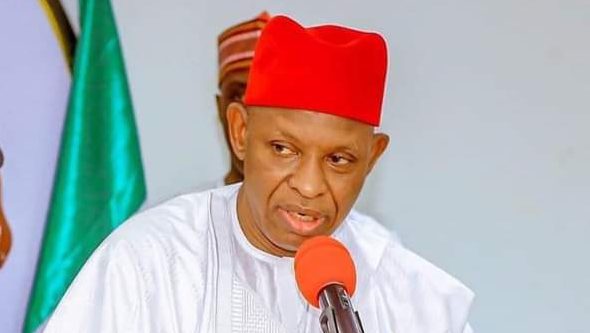Governor Abba Yusuf on Saturday lamented that his state, Kano, has suffered the worst form of corruption when compared to other states of the region.
He said Kano was hit by one of the major grand corruptions above any other state for eight years when Dr. Abdullahi Umar Ganduje governed the state from 2015 to 2023.
Yusuf stated this at a capacity building workshop for the state’s civil servants in the rank of director on the principles of anti-corruption.
The governor, who was represented at the occasion held at Dawakin Kudu Local Government by his deputy, Aminu Gwarzo, said corruption has undermined the progress and development of the nation and no one was in doubt.
“Kano State in particular has suffered and experienced one of the major grand corruptions perhaps above any other state in this region over the past eight years.
Read Also: Protest: Plot to bring down Tinubu’s government failed – Kwankwaso
“Our investment and state assets as the region’s center of commerce were hopelessly and fraudulently sold and those who acquired are initiators and executors of the whole process.
“In fact, most of those investments managed by Kano State Investment and Properties have both proceeds and the property gone back to the same people. Our infrastructure suffered years of neglect occasioned to multifaceted problems we are battling with after assuming office,” he lamented.
The governor disclosed that even the revenue generation aspect was bedevilled by leakages for the benefit of few to the detriment of the state’s collective interest.
According to him, heavy corruption during the Ganduje administration plunged the water resources sector into decay when he took over the reins of power, resulting in hardship even with the loan of six million Euros purportedly spent in that sector.
He explained that it was not out of place that his government prioritises anti-corruption as one of its core principles, adding that his resolve to fight corruption has been translated into so many cases currently before the courts.
The Kano State Public and Anti-Corruption Commission organised the workshop in collaboration with the office of the Head of Civil Service for the civil servants, according to the governor, because “our findings suggest that civil servants have been caught in so many cases of grand corruption. As such I will not hesitate to remind all of us that this administration will not condone nor tolerate act of corrupt practices in governing the state.”
The State Head of Civil Service, Abdullahi Musa, said the workshop was organised to equip civil service directors with the necessary tools and knowledge to champion the fight against corruption in their respective departments.
Chairman of the Anti-corruption Commission, Muhuyi Magaji said the most corrupt practices in government are done in active connivance with civil Servants.
“In the 101 cases of bribery and corruption we investigated, 99 percent were carried out with the active knowledge and connivance of the civil servants, making them dangerous tools for perpetuating corruption,” he said.
According to him, investigations show that highly-placed government officials engage civil servants in corrupt practices in the state. That is why, according to him, the commission decided to organise the capacity building workshop for civil servants to know the dangers and repercussions of corruption.
Magaji said: “We intend to sensitise the civil servants from being used by politicians against the law. They are caught in the middle of corrupt practices. All the grand corrupt practices the agency is investigating in Kano, civil servants are the ingredients and tools in the hands of those elements who operate at a high level.
“Again, 90 percent of corruption cases are perpetrated through procurement services. When politicians want to steal they use procurement as cover-up.
“So we are here to sensitise them on Anti-Corruption law, public procurement and financial management laws. Also to detail them on how to deal with the public finances of Kano State and Anti-Corruption laws and other relevant laws that will guide them on their mandates.
“We also have the local government staff here because we have a case where the politicians used local government cashiers’ personal accounts to siphon public funds. The cashiers withdraw the monies, take them to bureau De change and make returns.”






